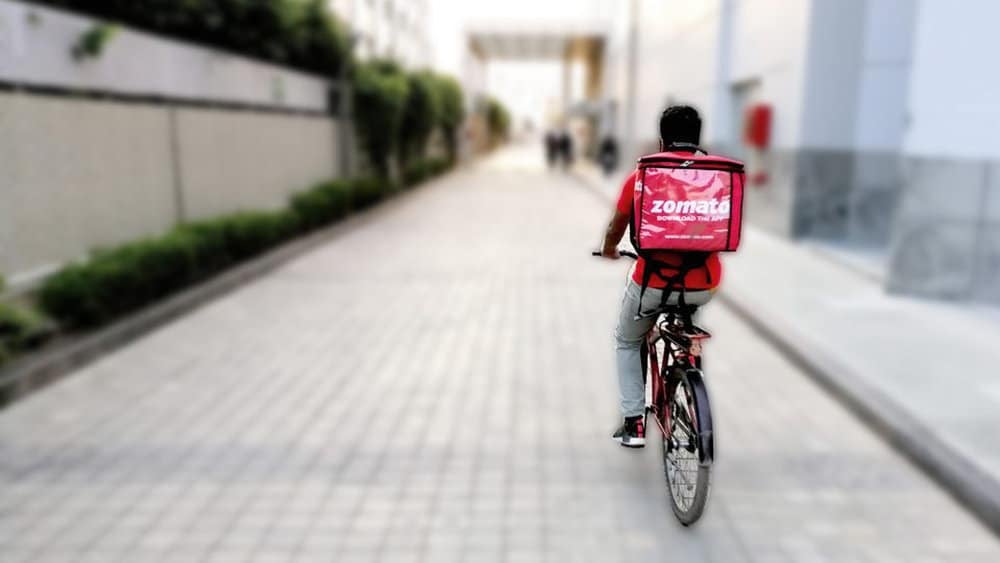
Zomato, an India-based restaurant search and food delivery platform, has pledged to move 40 percent of its last-mile delivery workforce to power-assisted bikes by the end of 2021. Mohit Gupta, the CEO of its food delivery business, stated that Zomato is conscious of India’s air pollution woes and is taking “baby steps” towards reducing its carbon footprint.
Zomato runs its business across 24 countries including the U.S. and Canada, with nearly 200 million monthly visitors to its site. What started out in 2008 as a restaurant discovery platform and then also as a crowd-sourced review forum, quickly grew to accommodate several thousand restaurants over the next decade, employing over 4,300 employees currently at a $2.5 billion valuation.
Zomato moved into online food ordering and delivery in early 2015. The Indian food delivery market now witnesses heavy competition as companies like Uber Eats, Foodpanda, Swiggy and Zomato fight to gain customer loyalty by providing discounts on food orders and expanding their reach across the country. In that regard, Zomato’s current move towards reducing its carbon emissions could likely create goodwill amongst its largely urban target audience.
Zomato has over 150,000 contract delivery workers in India, and adds nearly 150 more to its fleet every day. An overwhelming majority of these workers deliver food on motorcycles, as it is the fastest way to navigate the heavily trafficked and highly chaotic road traffic in Indian cities. Motorcycles generally emit fewer pollutants than automobiles. And though cars emit less pollution than delivery vans, the condition of many of these automobiles in India is dismal, due to shoddy maintenance and engines that run well past their prime.
With that in perspective, Zomato’s idea of shifting its workers to electric and mechanical bikes makes sense. “On an average, a million trips are carried out daily by these delivery partners in order to make sure our users receive their favorite food items on time,” wrote Gupta in the statement.
“These journeys translate to approximately 4.4 million kilometers (2.7 million miles) a day. To give you a relative context, that’s more than 11 times the distance between the earth and moon. With such an astronomical figure at play, one can only imagine the pollutants being discharged by the delivery fleet in totality,” he continued.
Unlike the West’s relative homogeneity in road traffic, Indian road traffic is extremely heterogeneous. A cursory glance across a traffic bottleneck in India often involves mechanical bikes, motorbikes, three-wheeled autos, cars, buses and trucks. Quite plainly, this makes delivery a nightmare. Add to this the impractical door-delivery time schedules that delivery companies force on their personnel, and last-mile logistics turns out to be a horrific ordeal for the workforce.
With bikes, Zomato’s personnel might actually gain leverage as they will be able to use the pavements and walkways to reach destinations on time. Zomato has mentioned that the delivery partners who agree to work on bikes would be allotted orders that require them to navigate a shorter distance – an average of 1.5 miles – to ensure speedy delivery. For now, Zomato asks its workforce to bring their own mechanical bikes to work, and for the ones who aspire to use electric bike variants, they can get one through Zomato’s partnership with bike entities like Mobycy, e-HIRAN, TNT, Yulu, and Zoomcar’s PEDL.
Zomato believes that apart from lessening its carbon footprint, this move would also open up opportunities for people who own bikes. Today, Zomato has 5,000 cyclists in its fleet, operating across 12 cities in India, with most of them working in the Delhi National Capital Region.











